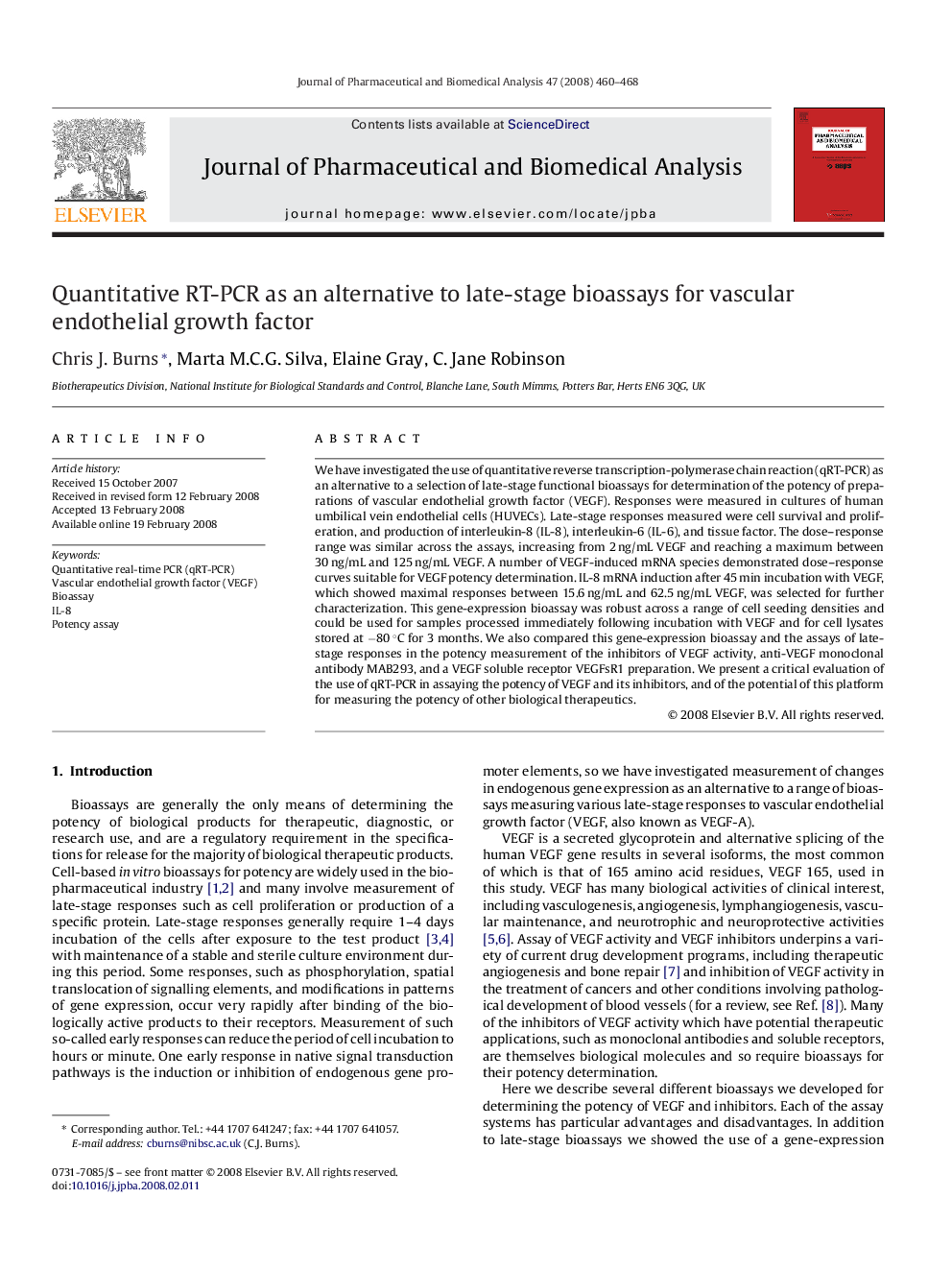| Article ID | Journal | Published Year | Pages | File Type |
|---|---|---|---|---|
| 1223093 | Journal of Pharmaceutical and Biomedical Analysis | 2008 | 9 Pages |
We have investigated the use of quantitative reverse transcription-polymerase chain reaction (qRT-PCR) as an alternative to a selection of late-stage functional bioassays for determination of the potency of preparations of vascular endothelial growth factor (VEGF). Responses were measured in cultures of human umbilical vein endothelial cells (HUVECs). Late-stage responses measured were cell survival and proliferation, and production of interleukin-8 (IL-8), interleukin-6 (IL-6), and tissue factor. The dose–response range was similar across the assays, increasing from 2 ng/mL VEGF and reaching a maximum between 30 ng/mL and 125 ng/mL VEGF. A number of VEGF-induced mRNA species demonstrated dose–response curves suitable for VEGF potency determination. IL-8 mRNA induction after 45 min incubation with VEGF, which showed maximal responses between 15.6 ng/mL and 62.5 ng/mL VEGF, was selected for further characterization. This gene-expression bioassay was robust across a range of cell seeding densities and could be used for samples processed immediately following incubation with VEGF and for cell lysates stored at −80 °C for 3 months. We also compared this gene-expression bioassay and the assays of late-stage responses in the potency measurement of the inhibitors of VEGF activity, anti-VEGF monoclonal antibody MAB293, and a VEGF soluble receptor VEGFsR1 preparation. We present a critical evaluation of the use of qRT-PCR in assaying the potency of VEGF and its inhibitors, and of the potential of this platform for measuring the potency of other biological therapeutics.
